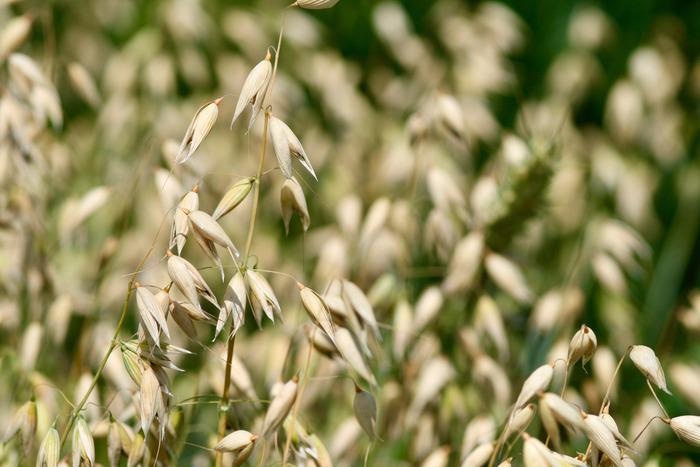Researchers have completed the sequencing and characterization of the oat genome. The oat genome architecture is extremely complicated when compared to other cereals and humans. An international study group led by Lund University, the ScanOats Industrial Research Center, and Helmholtz Munich has finally figured out why oats are healthier and cause fewer allergies and intolerances than other cereals at the genetic level.
 Oat. Image Credit: Olof Olsson
Oat. Image Credit: Olof Olsson
Oats are not only a very popular cereal, but also a very complicated one, genetically.”
Dr Manuel Spannagl, Study Head Author and Scientist, German Research Center for Environmental Health, Helmholtz Munich
Spannagl spent six years decoding and researching the oat genome as part of an international scientific initiative, identifying the whole set of genes included in this vital cereal. The oat genome’s complexity is due to its size and structure: oats have six sets of chromosomes totaling more than 80,000 genes, whereas humans only have two sets of chromosomes totaling roughly 20,000 genes.
Furthermore, compared to other cereals, the order of genes along the chromosomes is far less “sorted,” with a significant number of genes shifted across the chromosomes, leading to mosaic-like genome architecture.
Tracking down the health benefits of oats
Researchers can understand better which genes are responsible for certain features by knowing the genome sequence. The scientists were particularly interested in learning why oats cause fewer allergies and intolerances than cereals like wheat or rye. Researchers observed that oats have fewer proteins that are similar to gluten in wheat. Oats cause less intolerances in people since these proteins are linked to celiac disease and wheat intolerances.
This allowed us to confirm on a genomic level that oats in their pure form are suitable for a gluten-free diet.”
Dr Nadia Kamal, Study First Author, German Research Center for Environmental Health, Helmholtz Munich
Oats also have a substantially larger amount of so-called beta-glucans than other cereals. These dietary fibers lower cholesterol levels in the blood and help persons with metabolic diseases including type 2 diabetes. Scientists now understand which genes are responsible for the health-promoting beta-glucans thanks to their sequencing efforts.
New potential for breeding
Oats are noteworthy not just because of their health advantages, but also because they require fewer pesticides, fungicides, and fertilizer treatments than other cereals. The breeding and growth of more nutritious and sustainable oats can now be improved because of new insights into the oat genome.
We have created the potential for targeted breeding, since we are now able to tell which oat varieties are compatible with another. At this point, we can combine traits for an even more favorable health profile, higher yields, better resistance to parasites and drought, and most importantly, in preparation for climate change.”
Dr Nick Sirijovski, ScanOats Industrial Research Centre, Department of Chemistry, Division of Pure and Applied Biochemistry, Lund University
Oats produce high yields even on marginal soils and have a smaller overall environmental footprint than wheat; these characteristics are especially interesting for investigators in light of the potential challenge of providing nutritious plant-based alternative foods for a rising world population in a sustainable manner.
Source:
Journal reference:
Kamal, N., et al. (2022) The mosaic oat genome gives insights into a uniquely healthy cereal crop. Nature. doi.org/10.1038/s41586-022-04732-y.